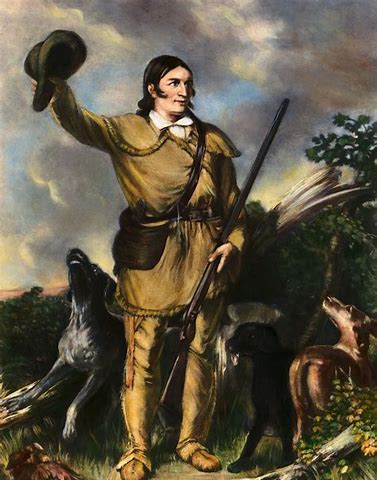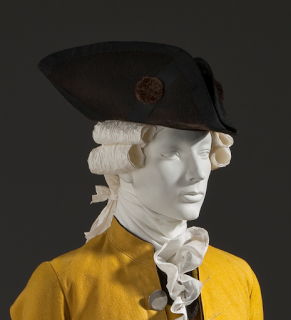Rockbridge County Genealogy, Wills, Estates, Tax Digests
It is said that George Washington was one of the surveyors of the region of Natural Bridge. Rockbridge County was established in October 1777 from parts of now neighboring Augusta and Botetourt counties, and the first county elections were held in May 1778. Rockbridge County was formed during an Act of Assembly intended to reduce the amount of travel to the nearest courthouse and to ensure trials were held fairly, and among friends rather than strangers. The first court session in Rockbridge County was held at the home of Samuel Wallace on April 7, 1778. Rockbridge County was named after Natural Bridge, a beautiful landmark in the southern portion of the county.
Tax Digests
- 1802-1814 ( images)
Miscellaneous
- Militia of 1796
Wills
- Abstracts 1778-1792
Images of Wills, Deeds, Estates 1778 to 1796
This record is without an index. (550 pages)
Images of Wills 1797-1806
Testators: Alexander, William |Anderson, James |Andrews, Mary |Barclay, Hugh |Bell, James |Campbell, Andrew |Clung, James |Cofwell, Valentine |Cowan, Samuel |Crawford, James |Cunningham, Thomas |Davidson, John |Dickson, James |Dickson, Patrick |Dunlap, John |Edmundson, Agness |Ellios, James |Ethany, Robert |Fulton, Francis |Gabert, Matthias |Garvin, Thomas |Gay, John |Hall, Andrew |Harper, Rev. James Sr. |Jamison, William |Johnson, Zechariah |Keys, Samuel |Lair, John |Lloyd, Elizabeth |Lowry, Peter |Martin, Jean |McCalpin, William |McCroskey, Alexander |McCulley, Robert |McFarland, Robert |McLaughlin, Edward |Miller, Mary |Moore, Elizabeth |Moore, William |Naughton, John |Ocheltree, James |Patterson, Samuel |Pettycrew, James |Poage, John |Porter, John |Porter, William |Priestly, William |Reed, Joseph |Richey, James |Scott, Thomas |Sproull, William |Stoops, Robert |Thompson, William |Troxal, Abraham |Taylor, Elizabeth |Taylor, George |Taylor, James |Thompson, John |Tooly, Elizabeth |Walker, John |Walker, Mary |Weir, James |Weir, John |Wiley, Alexander |Willey, John |Willson, Samuel |Wilson, William
Images of Wills 1806 to 1811
Testators: Bailey, James |Beard, Hugh |Beard, Sarah |Black, Henry |Bowyer, John |Cowman, John |Crawford, Michael |Cummins, John |Cunningham, Thomas |Dickson, James |Douglas, James |Dunlap, Ann |Garvin, Sarah |Giner, Lodowick |Goodbar, Joseph |Harper, James |Hays, John |Hodge, James |Hodge, Mary |Hollis, William |Holmes, Gabriel |Hopkins, James |Houston, Ann |Houston, Samuel |Hoytman, Philip |Hulman, Christopher |Hutchison, Robert |Johnston, James |Layhern, John |Lee, Martin |Mackey, John |McCampbell, John |McComb, William |McCorkle, Samuel |McCrosky, John |McDonald, Randal |McElhany, Mary |McNabb, James |McTur, Samuel |Moore, Samuel |Murphy, John |Mynes, Thomas |Patton, John |Porter, Alexander |Raplogh, Bolser |Rogers, Davis |Rust, Philip |Scott, Hugh |Sheen, Henry |Sisson, Caleb |Spence, Esther |Steele, Elizabeth |Steele, Samuel |Taylor, Daniel |Taylor, William Sr. |Thompson, John |Thompson, Thomas |Thornton, James |Tolly, Christopher |Willson, Samuel |Wilson, James Wilson, William
Davy Crocket in Rockbridge County

There came along three wagons. One belonged to an old man by the name of Dunn, and the others to two of his sons. They had each of them a good team and were all bound for Knoxville. They had been in the habit of stopping at my father’s as they passed the road, and I knew them. I made myself known to the old gentleman, and informed him of my situation; I expressed a wish to get back to my father and mother if they could fix any plan for me to do so. They told me that they would stay that night at a tavern seven miles from there and that if I could get to them before the day the next morning, they would take me home; and if I was pursued, they would protect me. This was a Sunday evening; I went back to the good old Dutchman’s house, and as good fortune would have it, he and the family were out on a visit. I gathered my clothes, and what little money I had, and put them all together under the head of my bed. I went to bed early that night, but sleep seemed to be a stranger to me. For though I was a wild boy, I dearly loved my father and mother, and their images appeared to be so deeply fixed in my mind, that I could not sleep thinking of them. And then the fear that when I should attempt to go out, I should be discovered and called to a halt, filled me with anxiety; and between my childish love of home, on the one hand, and the fears of which I have spoken, on the other, I felt mighty queer. But so it was, about three hours before the day in the morning I got up to make my start. When I got out, I found it was snowing fast, and that the snow was then on the ground about eight inches deep. I had not even had the advantage of moonlight, and the whole sky was hidden by the falling snow so I had to guess on my way to the big road, which was about a half mile from the house. I, however, pushed ahead and soon got to it, and then pursued it, in the direction of the wagons. I could not have pursued the road if I had not guided myself by the opening it made between the timber, as the snow was too deep to leave any part of it to be known by either seeing or feeling. Before I overtook the wagons, the earth was covered about as deep as my knees; and my tracks filled so briskly after me, that by daylight, my Dutch master could have seen no trace which I left. I got to the place about an hour before the day. I found the waggoners already stirring, and engaged in feeding and preparing their horses for a start. Mr. Dunn took me in and treated me with great kindness. My heart was more deeply impressed by meeting with such a friend, and at such a time, than by wading in the snowstorm by night, or all the other sufferings which my mind had endured. I warmed myself by the fire, for I was very cold, and after an early breakfast, we set out on our journey. The thoughts of home now began to take the entire possession of my mind, and I almost numbered the sluggish turns of the wheels, and much more certainly the miles of our travel, which appeared to me to count mighty slow. I continued with my kind protectors until we got to the house of a Mr. John Cole, on Roanoke, when my impatience became so great, that I determined to set out on foot and go ahead by myself, as I could travel twice as fast in that way as the wagons could. Mr. Dunn seemed very sorry to part with me and used many arguments to prevent me from leaving him. But home, poor as it was, again rushed on my memory, and it seemed ten times as dear to me as it ever had before. The reason was, that my parents were there, and all that I had been accustomed to in the hours of childhood and infancy were there; and there my anxious little heart panted also to be. We remained at Mr. Coles that night, and early in the morning I felt that I couldn’t stay; so, taking leave of my friends the waggoners, I went forward on foot, until I was fortunately overtaken by a gentleman, who was returning from market, to which he had been with a drove of horses. He had a led horse, with a bridle and saddle on him, and he kindly offered to let me get on his horse and ride him. “
Beaver Hats

